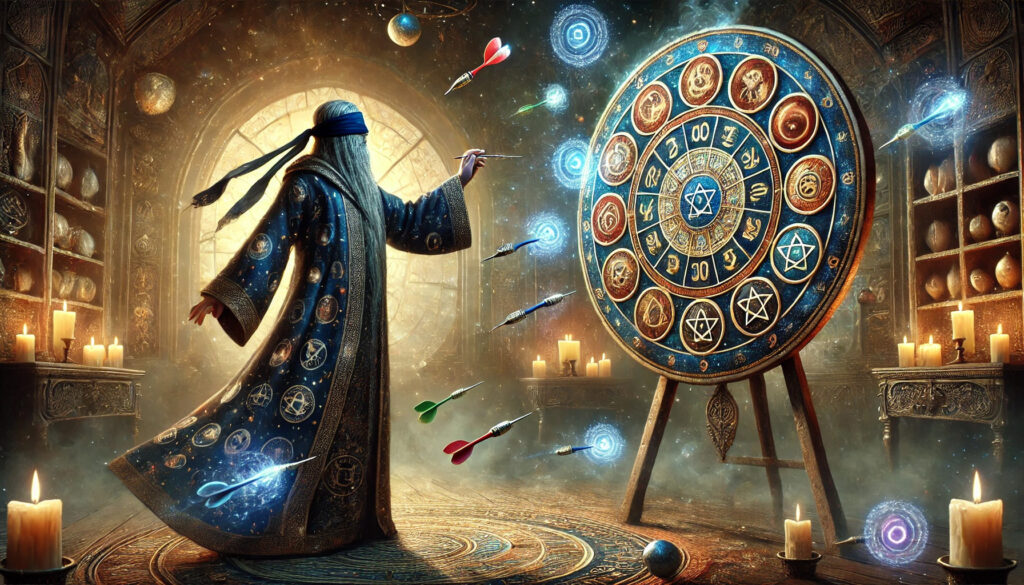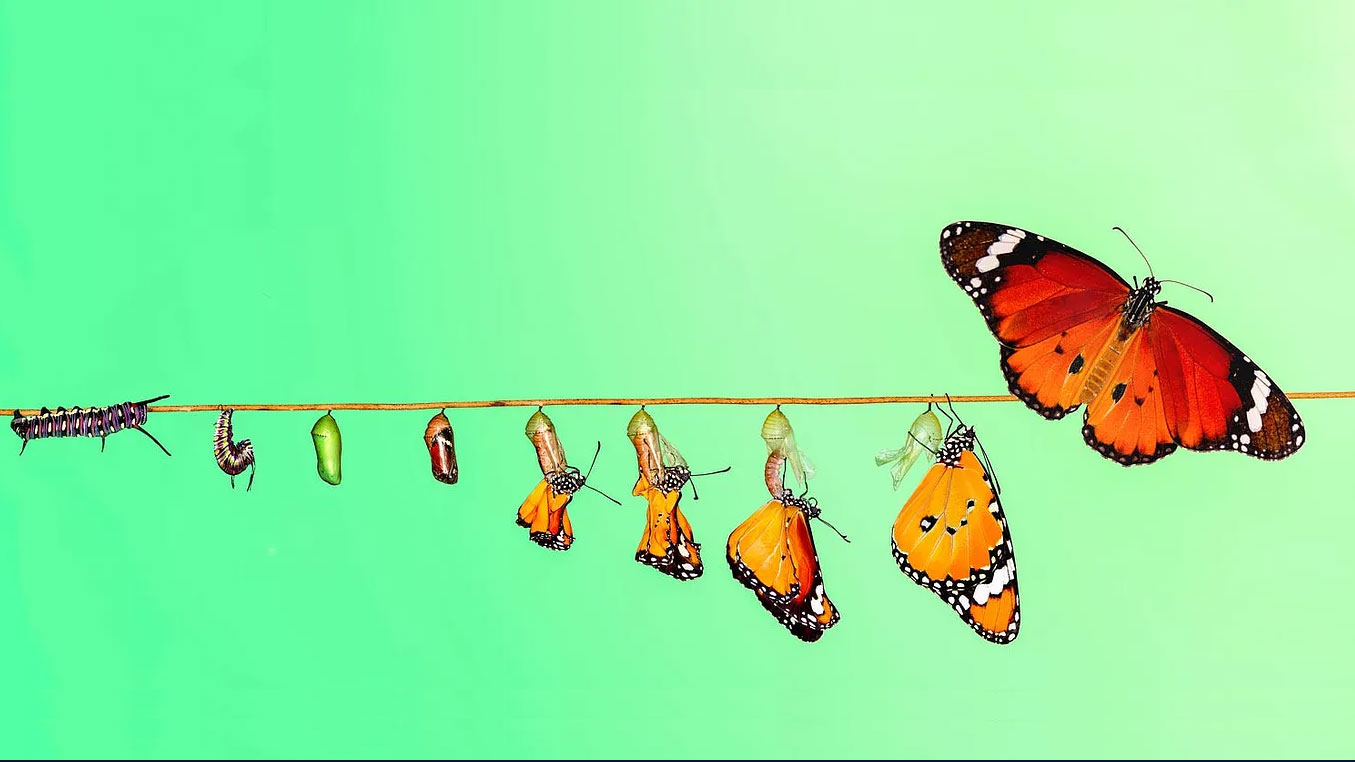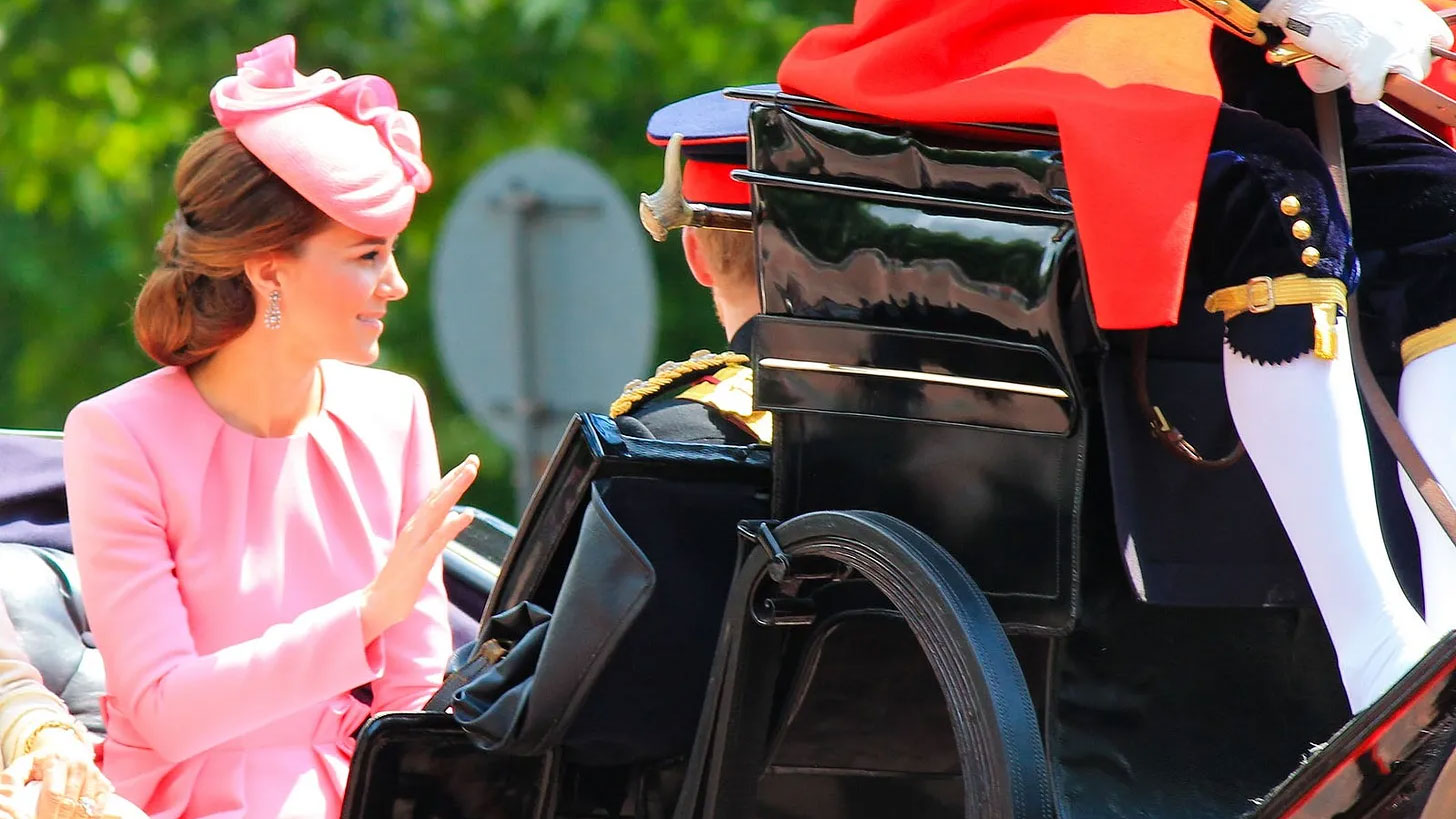Looking Beyond Astrology: A Better Way to Read People
Unpuzzling Astrology as a Match Maker and Futurist
Unpuzzling Astrology as a Match Maker and Futurist
“What’s your sign?” It’s a question you’ve probably heard at parties, on dates, or even during job interviews. Humans have looked to astrology for centuries to understand themselves and others. We’ve all had that moment of nodding along as someone describes how being a Scorpio explains their intensity or how Mercury being in retrograde affects their decision-making.
By nature, humans are prediction machines. We want to know what we are getting into before we get into it. A popular way to scope out the future is to consult our modern soothsayers—astrologers who read the alignment of the stars, practitioners of esoteric Tarot Cards, and palmists who interpret the lines, shapes, wrinkles, and curves on our palms to provide predictions about life and the future.
Good News For Astrologers
During times of uncertainty, people anxious about their future often turn to astrology and psychic services. The COVID-19 pandemic has fueled a surge in demand for psychics and, increasingly, psychic-reading apps.
According to the industry research firm IBISWorld,
- The market size of psychic services in the United States is $2.3bn in 2024.
- There are 105,000 psychic services businesses in the US, which have grown at an annual growth rate of 2.7 % between 2019 and 2024.
- Barriers to entry for psychic services are low. The number of psychics has grown over the past five years, leading to high competition within the industry.
- Rising unemployment and financial concerns led many consumers to seek pressing financial and career advice from psychics, reflecting a notable trend in consumer behavior.
- Personalized reports and virtual readings are gaining traction with younger consumers thanks to easy access via mobile apps and social media platforms.
Bad News for Astrologers
With the U.S. election of Donald Trump as America’s next president, astrology has hit a super-big bump in the Road of Life. Nearly all sun-moon-planet alignments carefully charted by astrologers predicted an overwhelming win by Trump’s Democratic opponent, Kamala Harris. As we now know, those predictions proved to be completely wrong.
Astrologers’ failure to predict the outcome of the 2024 presidential race shook the corpus of celestial gazers to the core. Many believers felt the rug had been pulled out from under them.”
While some astrologers were repentant, others doubled down on the challenges they viewed as unusual alignments of the sun, moon, and planets.
The election took place “with Pluto and Capricorn at the last degree of Capricorn,” and the inauguration in January “is taking place with Pluto in Aquarius,”…which points to some mystery about how “this story is going to continue to unfold.”
The big mystery that needs to unfold is the realization that astrology doesn’t work. Along with other psychic industries, such as palmistry and Tarot cards, astrology is a profitable division of the Pseudoscience Industry.
Like all psychic business divisions, astrological forecasts of romantic matches or futures of fortune are the creative inventions of good-willed but blindfolded practitioners throwing mystical darts at a Zodiac dartboard.
Sometimes, they hit the target, but they most often miss.
Searching for Validity in Pseudoscience Club’s Astrology Division
Astrology originated in Mesopotamia, now Iraq, about 4,000 years ago. Early Babylonian priests observed celestial patterns and linked them to seasonal events. They used these observations for agricultural planning, religious ceremonies, and interpreting star alignments as omens. This belief system rapidly spread to other regions, like Rome and Greece.
Today, astrology training is predominantly decentralized and non-standardized. While professional astrology associations, specialized schools, and university-level studies in certain regions can provide a more rigorous and structured education, the astrology industry remains largely unregulated. As a result, astrologers’ skill and credibility depend largely on their commitment to education, professional development, and ethical best practices.
The raison d’etre of astrology is to predict future events (such as political elections). Romantic hopefuls also consult astrological charts to determine partner compatibility in a long-term relationship.
The problem for the astrology industry is that no scientific evidence supports its prognostication claims, thus rendering astrology a pseudoscience.
I will underscore the assertion by briefly reviewing three research studies demonstrating that astrological predictions are no better than guessing. Multiple studies have reached this conclusion, but the three reviewed here will make the case.
Study One: The Sun’s Position at Birth is Unrelated to Subjective Well‐Being
Across many cultures, followers of astrology believe zodiac signs are linked to personality traits, life outcomes, and well-being. One study tested this belief.
Researchers examined the relationship between Western zodiac signs and subjective well-being in a nationally representative American sample from the General Social Survey (N = 12,791). Well-being was measured across eight components: general unhappiness, depressive symptoms, psychological distress, work dissatisfaction, financial dissatisfaction, perceived dullness of one’s life, self-rated health, and unhappiness with marriage.
The results showed no meaningful relationship between Western zodiac signs and subjective well-being in this nationally representative American sample. Wellness matches to the Zodiac signs accounted for 0.3% or less of the variability in the 12,791 participating subjects. The predictions of wellness by Zodiac signs were no better than random matches.
Study Two: Test-Client Profiles Don’t Match to Celestial Charts, and Astrologers Can’t Agree Among Themselves
In another study, the researchers analyzed the ability of 152 astrologers to match people to their natal charts accurately. Correct chart matchings in five sample case profiles would yield a perfect score of 12 for each astrologer. By their own self-assessment, the astrologers predicted they would get a score of five correct answers. The results yielded an average score of 2.4. Not a single astrologer got more than 5 out of 12 answers correct.
Even worse, astrologers showed little agreement about which natal chart belonged to each case profile (technical term: poor inter-rater reliability). The astrologers who reported the greatest expertise had the highest level of agreement, but they still only agreed with each other 28% of the time – whereas if they had been selecting charts at random, they would have agreed 20% of the time. The agreement between the highest skilled astrologers was only eight percent above chance. That is, the inter-astrologer agreement on matches was only slightly better than random guessing.
Study Three: Zodiac Signs for Marital Compatability Fails to Predict Marital Longevity
A third study tested the twelve Signs of the Zodiac as astrological predictors of marriage longevity and divorce. Using Swedish registry data gathered from 1969 through 2001, the study sample included Nordic-born individuals in heterosexual unions with Nordic-born spouses, numbering 66,063 marital unions and 46,000 divorces. The Zodiac signs of both partners for all unions were determined using their dates of birth, resulting in 144 Zodiac sign combinations.
The researchers found that couples with “compatible” zodiac signs were randomly distributed, and those with compatible signs did not have a lower risk of divorce.
Apart from astrological predictions, the real-world predictors of divorce observed in this study correspond to divorce predictors from other research:
- Individuals with a bachelor’s degree or higher have the lowest divorce rate
- Those with some college or an associate’s degree have slightly higher rates
- People with a high school diploma or less have the highest divorce rates
Overall, the study results showed that favorable sun sign matches did not predict marriage longevity, nor did unfavorable matches predict divorce.
Astrology: An Ancient Theory of Personality
Do these studies, and many others, show that astrology is useless as a predictor of human fortune? My answer is “yes,” with a few qualifications.
Here’s my qualifying question: what is your interest in astrology? Clearly, you want certainty about your future. But where are you looking for that certainty? If you follow astrology, you likely want to know more about the character and predictability of people in your life.
Happily, there is another way to do that without depending on mystical pseudoscience. Instead, learn about personality traits. When you strip away the effects of the sun, moon, and planets on shaping human character and fate, astrology is ultimately a study of personality traits.
Look at the description of the character (aka personality) traits associated with the Zodiac signs published by the Times of India.
Ancient astrologers could be considered the world’s first psychologists. Their error was believing these trait patterns had mystical causes linked to seasons of the year. However, this patterning of human traits associated with zodiac signs can occur in people born at any time of the year.
Today, we know that personality traits evolve through the complex interaction of genetics, life experiences, and environment (such as culture). See my essay that discusses the duplicity of personality traits in identical twins.
From Astrological Pseudoscience to the Science of Personality Traits
Five personality traits, known as the Five Factor Model or the Big Five, have been extensively studied in countries around the world. Researchers have established that these traits are fundamental to personality dynamics. While other secondary traits can be attributed to self-identity, the Big Five cover a lot of the “you that is you.”
In the section below, read the description of the five personality traits and consider where you fit in this framework. Each trait presented here is a large or small component of you. Think about how these traits apply to your personality.
You will see that I have likened these personality traits to Zodiac signs as a nod to ancient astrologers, the first psychologists.
Openness
- High openness: You tend to be curious, imaginative, and eager to explore new ideas and experiences. You are often drawn to creative pursuits and less conventional viewpoints. However, you may sometimes struggle with routine and find it challenging to conform to strict guidelines.
- Low openness: You generally prefer familiar activities and straightforward, concrete ideas. You value tradition and may be less interested in novelty or abstract concepts. Risk-taking and artistic pursuits may hold less appeal for you.
- Related Zodiac Signs:
- Aquarius: innovative, independent, forward-thinking
- Sagittarius: love of adventure, optimism, seeking new experiences
- Gemini: curious, adaptable, excellent communication skills
Conscientiousness
- High conscientiousness: You are organized, dependable, and self-disciplined. You value meeting commitments, prefer structured environments, and work methodically toward goals. While reliable, you may sometimes find it difficult to be flexible or spontaneous.
- Low conscientiousness: You may struggle to maintain routines, complete tasks promptly, or adhere to plans. You are less inclined to set goals or meet external expectations, and you may be more comfortable making decisions as situations unfold rather than following a strict schedule.
- Related Zodiac Signs:
- Capricorn: Known for ambition, discipline, and determination
- Virgo: attention to detail, analytical mindset, and practicality
- Taurus: reliable, practical, and determined
Extroversion
- High extroversion: You feel energized by social interactions and enjoy engaging with a wide range of people and activities. You tend to be assertive, enthusiastic, and comfortable in group settings.
- Low extroversion (introversion): You gain energy from quieter, more solitary activities and prefer depth over breadth in your experiences. While you may be less outwardly energetic, you often excel at thoughtful reflection and may offer keen insights when you engage with others.
- Related Zodiac Signs:
- Leo: confidence, charisma, thriving in the spotlight
- Aries: bold, adventurous, thriving on challenges
- Gemini: sociable, adaptable, excellent communication skills
Agreeableness
- High agreeableness: You value harmony, cooperation, and understanding. You strive to be kind, helpful, and sympathetic, often prioritizing others’ needs and interests. Your relationships tend to be strong and supportive.
- Low agreeableness: You place less emphasis on social harmony and may be more skeptical of others’ intentions. Trust must be earned, and you may feel less inclined to compromise for the sake of agreement.
- Related Zodiac Signs:
- Libra: Known for diplomacy, fairness, love of harmony.
- Pisces: Characterized by empathy, creativity, intuition.
- Cancer: Described as emotionally sensitive, nurturing, deeply compassionate.
Need for Stability (Neuroticism)
- High need for stability (high neuroticism): You are more sensitive to stress and may experience strong emotional reactions to challenges or setbacks. These reactions can last longer, making it more difficult to regain balance and focus.
- Low need for stability (low neuroticism): You generally remain calm under pressure and recover more quickly from stress. Minor frustrations are less likely to seem overwhelming, and you tend to maintain a steadier emotional state.
- Note: This trait is sometimes called “neuroticism” because people with high scores tend to have unfounded medical (somatic) complaints and/or diagnosable medical conditions.
- Related Zodiac Signs:
- Scorpio: Known for intensity, passion, and resourcefulness.
- Cancer: Characterized by emotional sensitivity, strong intuition.
- Pisces: deeply connected to their emotions and the world around them
Learn About Yourself and Others By Reading Personality Traits, Not Zodiac Charts
Through this unpuzzling essay, I hope you can see the parallels between a science-based view of people and a sun-moon-planets-based view. If you are fascinated with how the signs of the Zodiac profile people, then I cheeer you for your interest in the dynamics of human behavior.
In closing, propose abandoning two ideas. First, human nature is not determined by the alignment of celestial bodies. Second, human character is not determined by your date of birth. Any Big Five personality trait can exist in anyone born at any time. I will show in other unpuzzling essays that personality traits come about through a complex blending of genetics, life experiences, and your social and physical environment.
In summary: Looking Beyond Astrology: A Better Way to Read People
For those of you who decide to convert from pseudoscience to science, I applaud your clear vision and willingness to create a healthier and more modern worldview.

ABOUT THE AUTHOR
Wayne Stelk
A systems thinker and psychologist exploring the good, bad, and ugly of human nature. Editor of the newsletter, Unpuzzling Life's Complexities, the science of human behavior applied to everyday events.
SHARE THese UNPUZZLINGS
Unpuzzlings
THE LATEST UNPUZZLING
RELATED PUZZLES
Do Morals Need Religion? Ask Your Pre-Verbal Toddler
Around the world, our involvement with religion is changing. Participation in religious activities is declining in well-resourced countries where citizens feel relatively…
Your Personality: Who’s in Charge?
Unpuzzling the Nature and Nurture of Your Personality Your personality is the core of your self-identity. What do you know…
Why Does Hate Travel Faster Than Love?
It matters whether your worldview is convergent or divergent.
When Is Enough Enough to Change Your Mind?
In a skit, comedian Richard Pryor plays a husband whose wife comes home early to find him in bed with…
Personal Growth Strategies: Stages of Change
Who doesn’t have a bucket list of nagging problems in their life that they wish they could change? These problems…
Three Pathways for Personal Growth: Which Is Best for You?
A friend of mine is obsessed with physical health and personal growth. He works out daily in a gym, reads…
Why Are Global Cancer Rates Rising for Young People Under Age 50?
Conspiracy theorists were in a tizzy when Princess Kate disappeared from public for several months. Now that she has confirmed…









